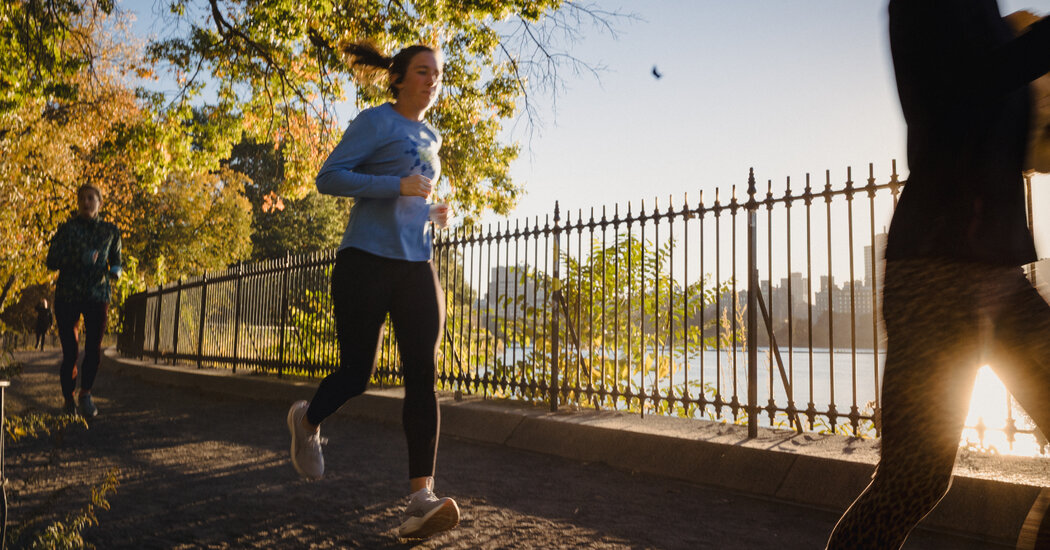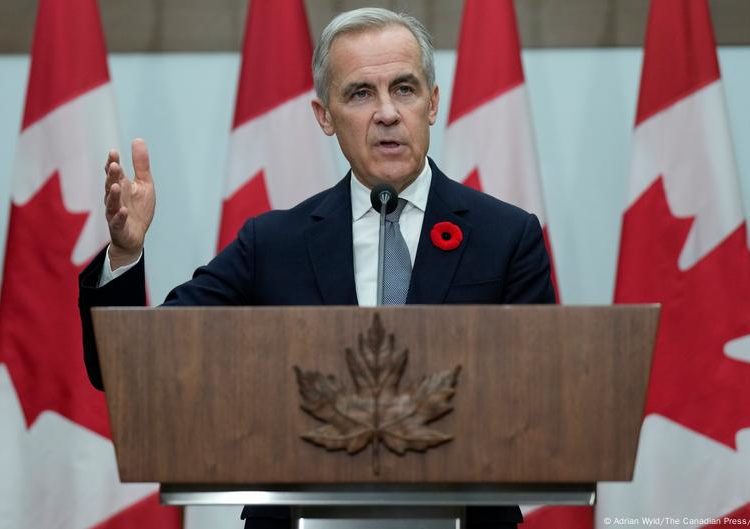A few weeks ago, Emely Nunez decided to commemorate something that was important to her by heading to a FedEx near her home in the Bronx and printing out 50 self-designed save-the-date cards that she planned to distribute to friends, family and even a few lucky strangers.
Ms. Nunez, who described the cards as “a little treat from me to the people,” said some early recipients did not know what to make of them. Was she getting married?
No, she was distributing save-the-dates for Nov. 2, when she would be running the New York City Marathon.
“They would start laughing,” Ms. Nunez said, “and I’d be like: ‘Um, this is not a joke. This is a reality.’ You’ve got to go big!”
Like thousands of other recreational runners across the city and beyond, Ms. Nunez is practically buzzing with hyperactive energy leading up to the marathon. By her own admission, training for Sunday’s race — her first marathon — became a mild obsession. It was not always easy.
“Sometimes, I do lose motivation,” said Ms. Nunez, who teaches art and STEM education to children at the Women’s Housing and Economic Development Corporation, a nonprofit in the Bronx. “But it’s all about consistency and having discipline. I have to show up for myself.”
It is a familiar refrain among first-time marathoners, who often go through training — so many months spent sharpening their minds and bodies for the big day — with mixed feelings.
There are a host of potential benefits to running a marathon, like getting in better shape, raising money for a charity or chasing a big dream, but there are also the blisters and the achy knees and the chilly jogs before work and the long runs on weekends that can leave them questioning their life choices.
Jen Tuohy, a first-time marathoner from Brooklyn, admitted to having the occasional existential crisis.
“I’ve had a couple of early morning runs in the park where it’s really dark,” said Mx. Tuohy, who is nonbinary and uses they/them pronouns, “and I’ve been like, ‘What am I doing here?’”
They are not the only runner struggling. Marathoning continues to grow in popularity — a record of more than 200,000 people applied for Sunday’s race, with fewer than 3 percent winning a sweepstakes draw for race bibs — meaning more runners than ever are experiencing the many highs and sporadic lows for themselves.
Laura Habecker, 34, turned to running in 2018 as a form of therapy after her grandmother was diagnosed with Alzheimer’s disease. Ms. Habecker, who lives in Manhattan, ran her first half-marathon in 2019, and both she and her husband, Michael Cline, will be making their marathon debuts on Sunday, after raising nearly $10,000 for a nonprofit that supports those affected by Alzheimer’s and dementia.
Back in June, Ms. Habecker printed a training schedule designed by the longtime running guru Hal Higdon and stuck it on her refrigerator. For five months, the schedule stared straight at her every time she was in the kitchen. A self-described stickler for sticking to the program, Ms. Habecker incentivized her runs by using a yellow highlighter to denote the ones she had completed.
“It sort of takes over your life,” she said, laughing, “because when you’re not running, you’re trying to figure out when you’re going to run.”
While Ms. Habecker trained before work each morning, Mr. Cline generally laced up his sneakers in the early evening. “He’s not a morning person,” his wife said.
The race was a constant topic of conversation in their household.
“Once you start training for the marathon,” Ms. Habecker said, “you love talking about the marathon.” Indeed, a common refrain about running a marathon is: If you did not talk about it, did you even run it?
Dr. Mitch Greene, a clinical and sports psychologist with a practice outside Philadelphia, recalled his own first marathon, in 1991. Back then, he said, he did not need to worry about keeping up with his friends on exercise-tracking apps, posting about his training on social media or running in the latest gear. He did not even wear a watch during the race. Those were simpler times.
Today, Dr. Greene said, he encourages marathoners to show up on the starting line with “a sense of curiosity” about the experience ahead of them. Too often, he said, fear and pressure are driving forces.
“They’re trying to prove they’re worthy, they’re trying not to disappoint their coach, they’re trying to keep up with someone on Strava — all these things that sometimes can help but often will interfere,” he said.
Mx. Tuohy began running regularly in March 2022, when their wife convinced them to sign up for a 5K training program through the Prospect Park Track Club.
“I really got into it,” said Mx. Tuohy, 49.
And then everything nearly blew apart. Just three months after joining the program, Mx. Tuohy was on the Jersey Shore, watching the sunset on a roof deck, when they experienced sharp pains in their chest. Mx. Tuohy was having a heart attack.
“I know it sounds cheesy,” Mx. Tuohy said, “but when I woke up in the hospital bed and couldn’t move, one of my first thoughts was, ‘When I can I run again?’ Running was impacting me so positively.”
Mx. Tuohy was undaunted in their recovery. Just five months after their heart attack, they ran a half-marathon — their first — in Philadelphia. Now, on the cusp of turning 50, Mx. Tuohy has zeroed in on the New York City Marathon after raising more than $5,000 on behalf of the American Heart Association.
For Ms. Nunez, the decision to become a runner was a New Year’s resolution, she said — so she joined the Bronx Burners Run Club and ran her first half-marathon in March, finishing in 2 hours and 19 minutes.
“It was just such a beautiful experience,” she said. “I also felt like it wasn’t that hard?”
So she began to aim higher: Perhaps she could find a marathon to enter by the end of the year. Opportunity beckoned about a month ago when Rob Dalto, the president and co-founder of the Bronx Burners, told the team that New Balance, which sponsors the marathon, had come through with a few race bibs if anyone wanted to run New York.
Ms. Nunez, who had been training throughout the summer, eagerly volunteered. A couple of weeks ago, she embarked on a 20-mile solo run through the streets of the city, mimicking the bulk of the marathon course. She listened to her favorite songs from “Hannah Montana” on her headphones, which died with about 4 miles remaining. She finished regardless.
“I definitely feel a little bit of pressure because, hello, it’s New York City,” Ms. Nunez said. “But I’m so excited. I’ve been crying all week. I can’t believe I’m doing this.”
She has a modest but dignified goal.
“Finish,” she said.
Scott Cacciola writes features and profiles of people in the worlds of sports and entertainment for the Styles section of The Times.
The post Ready to Run the Marathon (and Eventually Get Back to Real Life) appeared first on New York Times.




